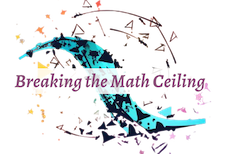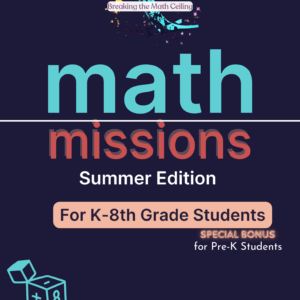Math Learning in Our Communities
- Math empowerment in marginalized communities.
- Real-world math applications foster engagement.
- Inclusive, culturally relevant math education.

Math Learning
Importance to Marginalized Communities
Imagine a world where every child lights up at the prospect of math class, not shrinking back in fear. I remember Gabriela, a bright student from a recently immigrated family. Numbers danced in her head when she listened to music, but traditional math problems felt like a foreign language. The pressure of tests only amplified her anxiety. It wasn’t until we incorporated elements of her cultural background and found ways to connect math to her passions that the spark ignited.
Mathematics isn’t just about numbers; the impact of learning mathematics extends to how one thinks and engages with the world. Historically, in marginalized communities (groups of people pushed to the edges of society economically, socially, or politically, often facing significant barriers to equal opportunities), mathematics learning has been a sore point for a couple of reasons:
- Lack of Resources:
- Schools in marginalized communities frequently suffer from underfunding, leading to a resource gap that makes it challenging to provide students with the robust math education they need to succeed.
- Cultural Relevance:
- Traditional math curricula often fail to reflect students’ cultural backgrounds and experiences from marginalized communities. This lack of relevance can result in disengagement and a sense that math is not for them, reinforcing negative attitudes toward the subject.
- Math Anxiety and Stereotypes:
- Many students from marginalized communities face stereotypes that suggest they are less capable in math. This societal bias, combined with the stress of high-stakes testing and previous negative experiences, can contribute to widespread math anxiety, making performance and confidence a difficult goal to dream.
As a first-generation American-born daughter of Dominican immigrants, a mother, and an educator, I’ve seen firsthand how math can transform lives and open doors. Let me share why math education is essential for empowering our communities in math learning.
Why Math Education is Critical for Empowerment
Math is a universal language that touches every aspect of our lives and futures. Proficiency in math isn’t just about acing tests; it boosts academic achievement across the board. It enhances critical thinking, problem-solving abilities, and financial literacy – skills that empower us to navigate the world confidently.
Building Confidence:
Math can be a powerful tool for building confidence, especially for students from marginalized communities who may face societal stereotypes about their abilities. Mastering challenging math concepts fosters a “growth mindset,” where students believe their intelligence and skills can develop through effort. With math empowerment, this newfound confidence spills over into other areas of life, encouraging them to tackle new challenges and believe in their potential to succeed.
Imagine a student who has struggled with math in the past. They finally grasp a difficult concept through a supportive learning environment and engaging lessons. This experience of overcoming a challenge builds their confidence and shows them the power of perseverance. This newfound self-belief empowers them to approach other academic and personal challenges positively.
Math as a Language of Opportunity:
Math is a universal language that transcends cultural barriers. Proficiency in math opens doors to educational and career opportunities on a global scale. In today’s interconnected world, strong math skills are increasingly sought after in a wide range of fields, not just STEM. Math empowerment begins early in a child’s life.
Imagine a young student who excels in math. Their strong foundation allows them to pursue higher education in a competitive field like engineering or computer science. This opens doors to exciting career opportunities that may not have been accessible otherwise. Math becomes a bridge to a brighter future, not just for the individual but potentially for their entire family and community.
Bridging the Gap: Empowering Families and Educators
We’ve established the importance of math education for students in marginalized communities. Now, let’s explore some action steps that families and educators can take to bridge the gap and ensure all students have the opportunity to thrive in math.
Families
01
Create a Math-Positive Environment
- Celebrate your child’s math effort and progress, not just the correct answers. Incorporating this level of math empowerment fosters a growth mindset and builds confidence.
- Incorporate math into daily activities, like measuring cooking ingredients or calculating discounts during shopping. These small actions show that math is everywhere and can be fun.
02
Use Everyday Opportunities for Math Learning
- Engage in math conversations during everyday activities. Compare prices, plan trips by calculating distances and times, and discuss budgeting allowances.
- Explore math apps and online games that make learning interactive and enjoyable.
03
Seek Out Community Resources
- Look for local libraries, community centers, and online platforms offering free math tutoring or enrichment programs.
- Participate in family math nights or community events focused on making math accessible and fun for everyone.
Educators
01
Incorporate Culturally Relevant Pedagogy
- Use examples and problems that reflect your students’ cultural backgrounds and experiences. This makes learning more relevant and engaging.
- Highlight contributions to mathematics from diverse cultures and figures to inspire and motivate students.
02
Foster a Growth Mindset
- Encourage math empowerment in students to view challenges as opportunities to learn and grow. Celebrate their efforts and strategies rather than just their innate abilities.
- Provide regular, constructive feedback to help students understand that perseverance and effort lead to improvement.
03
Build Partnerships with Families and Communities
- Maintain open communication with families about their children’s progress and suggest ways they can support math learning at home.
- Collaborate with community organizations to provide additional resources and support for students.
04
Use Engaging, Real-World Problems
- Design math lessons that connect to real-world issues and students’ interests, making the content more relevant and motivating to increase the sense of math empowerment in our communities.
- Implement project-based learning where students can apply math to solve practical problems in their communities.

Math Empowerment
Empowering students through math education is crucial for achieving equity and success in marginalized communities. We can create a supportive and inclusive learning environment by addressing the resource gaps, integrating culturally relevant pedagogy, and combating math anxiety. Together, families and educators can make a significant impact, ensuring that every child has the chance to become a confident and capable mathematician.
Call to Action
The summer months can be critical for learning loss, especially in math. But it doesn’t have to be! For families looking to keep their child’s math skills sharp and engagement high, check out exciting resources like Math Missions: Summer Edition. This program offers K-8 students daily math missions that are fun, engaging, and can be seamlessly integrated into summer routines. From exploring math at the grocery store to embarking on a budget-friendly family outing with a mathematical twist, Math Missions: Summer Edition makes learning an adventure! So why wait? Empower your child’s math journey this summer with Math Missions!
Consultant
Elly Blanco-Rowe
“In the math classroom, equity ensures that all students, regardless of their starting point or individual differences, has an equal chance to engage with and excel in math concepts.” – TextHelp
disclaimer
The information provided in this blog is for educational and informational purposes only. While we strive to keep the information up-to-date and correct, we make no representations or warranties of any kind, express or implied, about the completeness, accuracy, reliability, suitability, or availability with respect to the blog or the information, products, services, or related graphics contained on the blog for any purpose. Any reliance you place on such information is therefore strictly at your own risk.
Please note that some of the links on this blog are affiliate links, and at no additional cost to you, we earn a commission if you make a purchase. We recommend these products and services because they are helpful and useful, not because of the small commissions we make if you decide to buy something.
This blog does not constitute financial or legal advice. Please consult a professional for advice tailored to your situation


